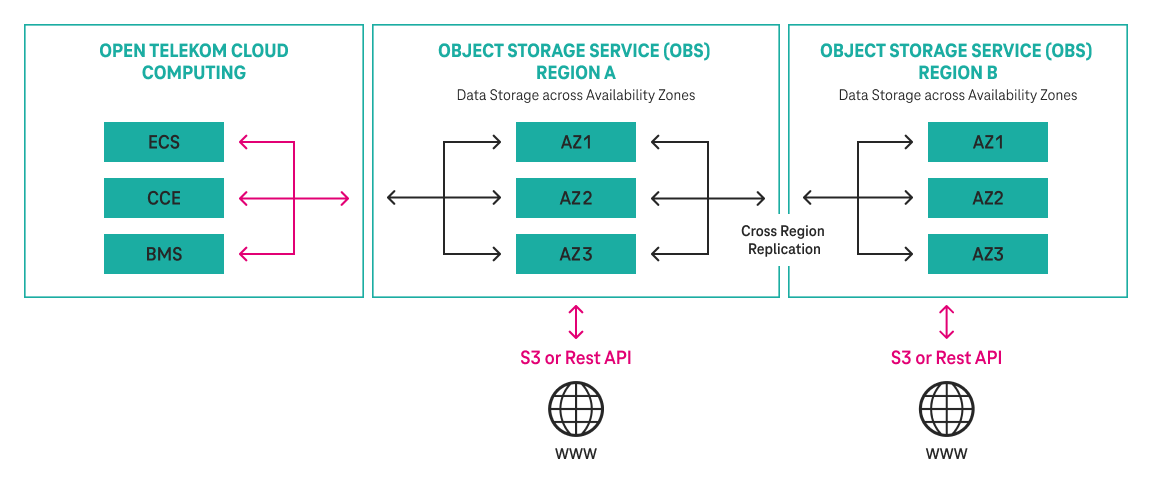Companies and cloud service providers are facing the challenge to keep pace with exponential data growth. This includes not only the physical scaling of the storage itself, but also the administration of large amounts of data. From a consumer perspective, data needs to be available everywhere and all the time. This requires proper security mechanics that ensure that only target consumer services have access to the data.
For these storage demands the Object Storage Service (OBS) is the perfect fit. A highly secure, reliable and scalable storage solution that allows you to store any volume of unstructured data in any format. It is accessible from any location at any time via various accessibility options like REST APIs. OBS provides different storage classes allowing you to cost-effectively manage your data depending on your accessibility demands. The warm storage class is suitable for infrequently accessed data. It offers lower storage costs at a slightly higher latency compared to the standard class. The cold storage class is the best fit for rarely accessed data, such as archives where access does not need to be real-time.



















